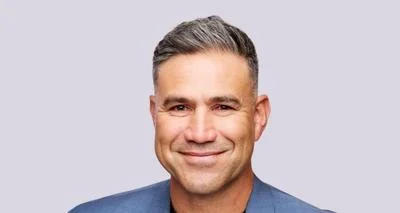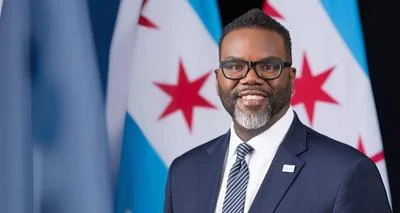Mayor Lori E. Lightfoot and the Department of Family and Support Services (DFSS) Commissioner Brandie Knazze announced today that the Chicago Resilient Communities Pilot (CRCP), one of the largest monthly cash assistance pilots in the nation, is now fully enrolled.
All 5,000 households have received at least their first $500 direct cash payment. As part of Mayor Lightfoot’s commitment to an equitable economic recovery, the $31.5 million monthly cash assistance program is designed to provide increased financial stability to low-income households, who have been disproportionately impacted by COVID-19. Participating residents will receive $500 a month for 12 months via direct deposit into their bank accounts or a prepaid debit card. The final participants were selected by lottery from more than 176,000 applications.
“Through the Chicago Resilient Communities Pilot, we are ensuring our communities can access financial assistance to meet their most essential needs," said Mayor Lightfoot. "This resource is especially important for the families that were the most impacted by the COVID-19 pandemic and have yet to fully recover. Moreover, the pilot reinforces our belief that each of our residents, regardless of their income or ZIP code, deserves the opportunity to support themselves and provide for their family.”
Participants met numerous eligibility requirements focused on supporting an equitable recovery from COVID-19, including having household income at or below 250% of the Federal Poverty Level (FPL) and having experienced a negative economic hardship due to COVID-19. New data shows that the median household income for CRCP participants is just $14,000 a year.
“Many Chicagoans still face an uphill battle as they recover from the economic impacts of the pandemic, and direct cash assistance can support the flexibility they need to truly move forward,” said DFSS Commissioner Brandie Knazze. “It was a priority to ensure individuals from vulnerable populations and those hard hit by COVID-19 were supported.”
Of the final participating households:
- 75.6% live in a community with medium to high economic hardship.
- 62.5% identify as a caregiver.
- 60.2% live in poverty, and 36.7% live in deep poverty at or below 50% FPL.
- 9% indicated in their application that they are currently experiencing housing instability or homelessness.
- 71.1% of recipients identify as women.
- 68.3% identify as Black or African American.
- 23.5% identify as Hispanic or Latino.
- 15.7% identify as White.
- 3.4% identify as Asian.
All applicants were notified of their application status by the first week of June, with 3,500 selected applicants finishing enrollment and receiving their first checks in July. The global cash assistance nonprofit GiveDirectly, program administrator for the CRCP, offered both virtual and in-person enrollment options and conducted more than 900 benefits counseling sessions for residents who wanted to review any potential impact on their household benefits prior to enrolling. Among participating households, 58% currently receive food assistance through The Supplemental Nutrition Assisting Program (SNAP).
“For many of the folks we enrolled in person, this program was too good to believe. You could tell they were still skeptical even once they’d signed up — now that 100% of people have gotten their first payments, they can start planning for the future and begin to believe,” said Sarah Moran, U.S. Country Director at GiveDirectly.
Over the next 12 months, the focus of the pilot will shift to supporting research activities. Both participants and non-participants were invited to participate in the pilot's optional research study run by the University of Chicago Inclusive Economy Lab, which includes a stipend for participation. The study will evaluate how the CRCP program affects participants’ financial and overall well-being and will generate learnings to strengthen existing and future City programs and similar pilots nationwide. For more information on the CRCP, visit chicago.gov/cashpilot and sign up for the mailing list to receive updates.
The CRCP program is just one initiative within the broader $1.2 billion Chicago Recovery Plan to promote safe and thriving communities and an equitable economic recovery from COVID-19. Learn more at chicago.gov/recoveryplan.
Original source can be found here.




 Alerts Sign-up
Alerts Sign-up